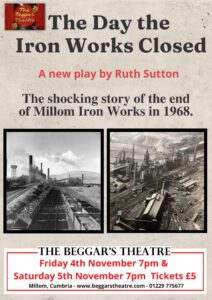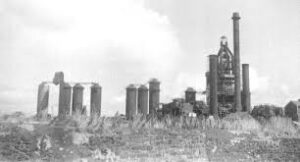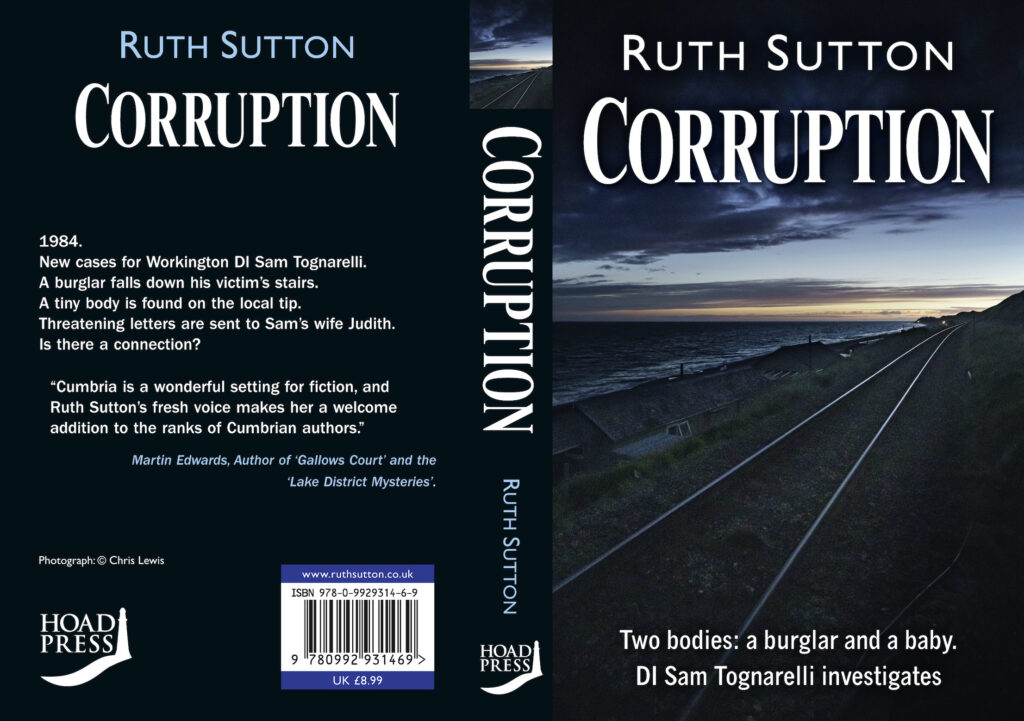by Ruth Sutton | Mar 18, 2024 | agents, memory, motivation, structure
My last book was written three years ago, and since then I’ve been unsure whether I had either the motivation or the time to write another. In 2022 I wrote a play because I was asked to do so. The writing, followed by taking the play to the stage, took up the whole of that year. 2023 seemed to be a year of travelling, with one holiday and two trips prompted by the need to see old friends. As I get older I’m aware that I may not be able to see friends overseas as often as I once did, and each time may be the last. I didn’t have enough settled time to start a writing project.
As 2024 began, however, the urge to write emerged from its hiding place and began to bother me, I’ve written in one form or another all my life and I enjoy it. Writing produces a level of concentration that blots out everything else, and feels like really good exercise. If I didn’t have a story waiting to be told, what could I write about? It occurred to me that my grandchildren knew me only as their grandmother, which I have been for the past twenty years or so. My life before they came along is largely unknown to them, and I wanted them to know more about it. Why is that, I wonder? Ego, possibly. Or maybe my wish to inform them is just a front: what I really want is to inform myself, to put my own life into some perspective and see what it looks like on the page.
I’ve seen books and courses on memoir writing but I haven’t checked them to see how such an undertaking should be approached. I decided that so long as I was clear about ‘purpose and audience’, as with any good writing, and kept to that, the form would take care of itself. So I accepted my first decision, that my purpose was to inform my grandchildren and that they were my audience. That has proved useful, for the time being at least. For example, having them as my prospective audience has steered me away from too lengthy and detailed a description of how my partner and I began our relationship, which is probably a blessing.
I’ve called the piece ‘Fragments from a Life’ because it is fragmentary. Some things I remember from decades ago as clearly as the day they happened, while other episodes are only a blur, or have been forgotten all together. As I write, details come back to me, and some of them have been so painful that I’ve had to stop for a while, and they have resurfaced in my dreams. I realise that what cements an incident in my memory is not the factual context but what I was feeling at the time. Emotions create the sharpest memories. One example is a road trip across the USA undertaken in the summer of 1977 with my then husband, my sister, and my young daughter. It included some of the most iconic places and landscapes imaginable, but what I remember most is the misery and exhaustion that enveloped me and blotted out almost everything else. It was probably that misery that has prevented me in the years since from making any effort to remember. I’m sure my daughter, who was nine at the time, will recall far more than I do.
I’ve chosen chronology as the simplest structure, whereas it could conceivably have been arranged in themes – travels, work, family, and so on. Those possible themes have been much entangled, however, which probably says something about my life. Work has been the dominating thread, but being a self-employed person for the majority of my working life means that my working decisions have been personal ones too. I see now that I have regularly put my work needs above family needs, and I have some regrets about that.
So far, the ‘fragments’ amount to nearly 20,000 words, and there’s still a fair bit to cover. I have an agent now, fifteen years after I began writing, and she rubs her hands at the prospect of getting my memoir published, but she will be disappointed as I have no intention of sharing it beyond the family. By the way, the story of how an agent appeared so late on the scene is an interesting one, for another occasion.
For now, I shall plough on and keep editing, editing, editing. I’m enjoying it. Maybe by the end of it I’ll feel more inspired to write another novel, or another play. Who knows?
by Ruth Sutton | Aug 16, 2022 | Uncategorized
Hello again, after another long absence!
I’ve been busy this year, but not with the usual activity of writing a novel.
Several months ago, I was commissioned by a project called Deep Time (http.deeptime.uk) to write a piece about West Cumbria’s rich industrial history, and this play is the result. We have our cast, tickets are already on sale from the Beggar’s Theatre website http://www.beggarstheatre.com in Millom.
Rehearsals start next month. Very exciting.

It’s all in the poster…the play tells the story of Friday September 13th 1968, through the experience of a single Millom family. On that day the town’s Iron Works closed suddenly with the loss of nearly 500 jobs, a catastrophe for a small community.
Similar stories could be told in other communities that have suffered such closures as our heavy industry has declined, and they deserve to be remembered.
Buy your tickets, and join us on Friday Nov. 4th or Saturday Nov.5th at 7pm
by Ruth Sutton | Jan 20, 2022 | crime fiction, Cumbria, West Cumbria, writing
It’s January 2022, and it’s been a long time since I posted on my own website. I’ve actually been posting like mad, but elsewhere, on other websites and Facebook pages that I seem to have been dragged into over the past year or so. Time to make amends, and for some reflection on my writing.
The new book ‘Collateral Damage’ is on the website, thanks to Russell who manages that side of things for me, but anyone curious about what I’ve been up to – apart from getting the new book out – would look in vain. My only excuse is that it’s been a very strange time for all of us. Priorities have been challenged and new perspectives emerging that seem to have taken me in different directions. Old routines were dismantled and replaced with new ones.
Even before the world changed and lockdown followed lockdown, I was beginning to ask myself about how many more novels I had in me. The last two, ‘Corruption’ in 2020 and then ‘Collateral Damage’ in 2021, were lockdown projects, ideal to fill the time released by the suspension of other activities. They were both crime novels using the same characters and West Cumbrian settings that I’d used before, which was useful as it reduced the amount of research necessary when some of my usual sources were unavailable. Local History archives were closed and it was less easy to find and talk to people in the pursuit of authenticity. These two books were still written with care, and I’m pleased with them both, but I felt less investment in them, especially compared to the earlier novels. They were designed to fill the gap left in the crime series that began with ‘Cruel Tide’, set in 1969, and ended with ‘Out of the Deep’, set in the autumn of 2001. Between ‘Fatal Reckoning’ (set 1971) and ‘Burning Secrets’ (set 2001), there was a thirty year gap, which needed filling in. Now that’s done, so what next?
 The current project is not another novel, but a stage play, about the closure of the Millom Iron Works in 1968. It was prompted by my involvement with a big ‘arts project’ called ‘Deep Time’, which focusses on the industrial history of the West Cumbrian coast. Limitations of time put another novel out of reach, and I decided to go for a play instead. It was time I did some more learning, too – too easy to repeat the same skills for the tenth time. So a play it is. Working title ‘The Day the Iron Works Closed’. World premiere? Millom, September 2022. Watch this space!
The current project is not another novel, but a stage play, about the closure of the Millom Iron Works in 1968. It was prompted by my involvement with a big ‘arts project’ called ‘Deep Time’, which focusses on the industrial history of the West Cumbrian coast. Limitations of time put another novel out of reach, and I decided to go for a play instead. It was time I did some more learning, too – too easy to repeat the same skills for the tenth time. So a play it is. Working title ‘The Day the Iron Works Closed’. World premiere? Millom, September 2022. Watch this space!
by Ruth Sutton | Oct 10, 2020 | book covers, crime fiction, Cumbria, historical fiction, Lake District, Publishing, readers, setting, Uncategorized, West Cumbria
Here it is – the cover of the new book. It’s due out on November 6th 2020, a child of the lockdown, and a good yarn. I’ll add it to my Paypal-linked website bookshop before publication day, and the Kindle version will be available after Christmas. The ISBN number is 978-0-9929314-6-9 if you want to buy it through your local bookshop. Tell your friends!

by Ruth Sutton | May 1, 2020 | drafting, first draft, pace, planning, plotting, structure, Uncategorized
At 7.54am this morning I checked the Tesco online delivery service and to my astonishment, there was a delivery slot available and I got it.  Not only that, I put in a long list of things we needed and checked out. All done within fifteen minutes, booked, paid for and the confirmation email kin the inbox. For some unaccountable reason this minor lockdown triumph filled me with confidence. I’d managed something that had been beyond my reach for weeks.
Not only that, I put in a long list of things we needed and checked out. All done within fifteen minutes, booked, paid for and the confirmation email kin the inbox. For some unaccountable reason this minor lockdown triumph filled me with confidence. I’d managed something that had been beyond my reach for weeks.
Within hours, the optimistic glow of a obstacle successfully hurdled transferred itself to the outline of a new story I’ve been struggling with. I can do this, I said firmly to myself. If I can scale the Tesco delivery mountain I can sort out the flabby middle of a plot which starts well, and could end well, but flounders around in between.
 I can’t be the only one who struggles with a muddle in the middle. This is the stage where the story gets complicated, and possible blind alleys are introduced to tempt the reader but end up confusing the writer instead. It’s all very well starting several hares running, but you have to know roughly where they’re going to end up. I thought I’d done that, but going back to the outline after a bad night I realised that there were plot holes all over the place: hence the feeling of inadequacy that a successful tussle with Tesco seems to have cured.
I can’t be the only one who struggles with a muddle in the middle. This is the stage where the story gets complicated, and possible blind alleys are introduced to tempt the reader but end up confusing the writer instead. It’s all very well starting several hares running, but you have to know roughly where they’re going to end up. I thought I’d done that, but going back to the outline after a bad night I realised that there were plot holes all over the place: hence the feeling of inadequacy that a successful tussle with Tesco seems to have cured.
So now I’m back, unpicking and mending the holes, unmuddling the middle and hopefully adding more life and colour to the story as a whole. The great thing about the current situation is that I can slow down and take my time. No point in having deadlines that just fade into the mist of uncertainty that surrounds us right now. This stage of the writing process will take as long as it takes, and when I’m ready, the first draft will roll out as smooth as a good Malbec.


 The current project is not another novel, but a stage play, about the closure of the Millom Iron Works in 1968. It was prompted by my involvement with a big ‘arts project’ called ‘Deep Time’, which focusses on the industrial history of the West Cumbrian coast. Limitations of time put another novel out of reach, and I decided to go for a play instead. It was time I did some more learning, too – too easy to repeat the same skills for the tenth time. So a play it is. Working title ‘The Day the Iron Works Closed’. World premiere? Millom, September 2022. Watch this space!
The current project is not another novel, but a stage play, about the closure of the Millom Iron Works in 1968. It was prompted by my involvement with a big ‘arts project’ called ‘Deep Time’, which focusses on the industrial history of the West Cumbrian coast. Limitations of time put another novel out of reach, and I decided to go for a play instead. It was time I did some more learning, too – too easy to repeat the same skills for the tenth time. So a play it is. Working title ‘The Day the Iron Works Closed’. World premiere? Millom, September 2022. Watch this space!
 Not only that, I put in a long list of things we needed and checked out. All done within fifteen minutes, booked, paid for and the confirmation email kin the inbox. For some unaccountable reason this minor lockdown triumph filled me with confidence. I’d managed something that had been beyond my reach for weeks.
Not only that, I put in a long list of things we needed and checked out. All done within fifteen minutes, booked, paid for and the confirmation email kin the inbox. For some unaccountable reason this minor lockdown triumph filled me with confidence. I’d managed something that had been beyond my reach for weeks. I can’t be the only one who struggles with a muddle in the middle. This is the stage where the story gets complicated, and possible blind alleys are introduced to tempt the reader but end up confusing the writer instead. It’s all very well starting several hares running, but you have to know roughly where they’re going to end up. I thought I’d done that, but going back to the outline after a bad night I realised that there were plot holes all over the place: hence the feeling of inadequacy that a successful tussle with Tesco seems to have cured.
I can’t be the only one who struggles with a muddle in the middle. This is the stage where the story gets complicated, and possible blind alleys are introduced to tempt the reader but end up confusing the writer instead. It’s all very well starting several hares running, but you have to know roughly where they’re going to end up. I thought I’d done that, but going back to the outline after a bad night I realised that there were plot holes all over the place: hence the feeling of inadequacy that a successful tussle with Tesco seems to have cured.
Recent Comments